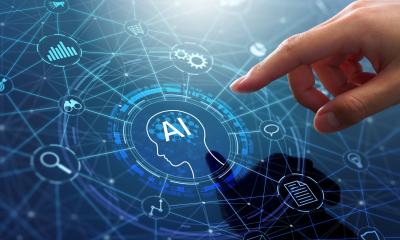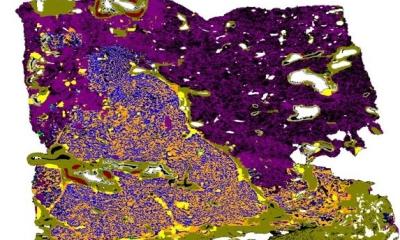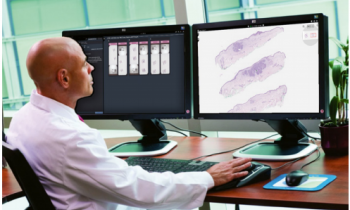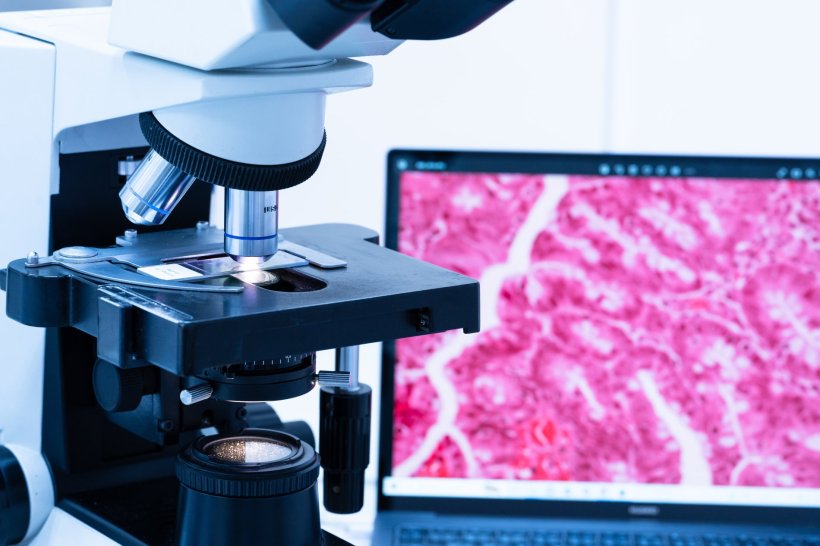
© arcyto – stock.adobe.com
Article • Transformative technology
Debating the case for AI in pathology
Artificial Intelligence (AI) remains a divisive topic within the discipline of pathology with a range of opinions over its current value and applicability in clinical settings. While most experts agree that the technology will not replace pathologists, it might still spell bad news for those who do not embrace AI in their daily practice. On the other hand, reservations persist about whether pathologists are ready to achieve this adoption this in the first place.
Report: Mark Nicholls
The topic was discussed during a lengthy session at the 36th European Congress of Pathology in Florence, Italy, where speakers argued the pros and cons of AI within pathology in a lively debate. Delegates were also asked to add their views during real-time surveys on pertinent questions regarding AI.
Will Europe be left behind?
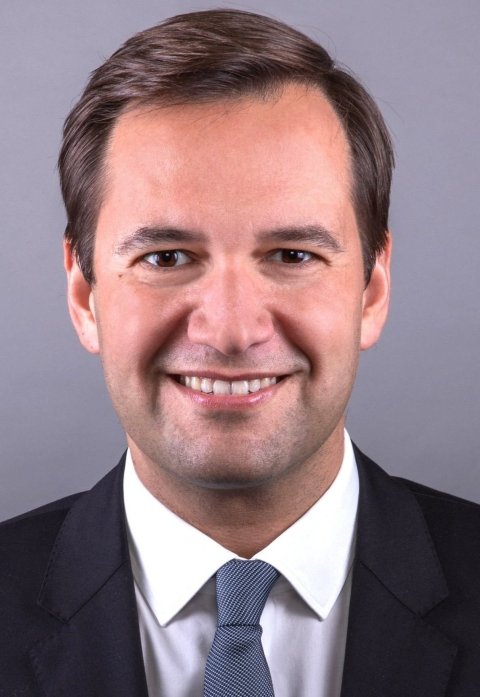
Image source: Health AI
Yet it was a powerful opening from a leading AI expert that set the tone for the session. Dr Ricardo Baptiste Leite, CEO of HealthAI – a Geneva-based global agency for responsible AI in health – said the global AI healthcare market was worth $11bn in 2022, with China taking a lead with 61% of patents in 2015-22, compared to 21% from America and a mere 2% from the UK and the EU. The market worth is estimated to reach nearly half a trillion US Dollars in 2032.
‘We are on the verge of tremendous geopolitical tensions in which Europe really needs to reposition itself if it wants to be an active player,’ he said. Leite indicated that AI may be accelerating healthcare inequalities and that it was important to bring the human factor into the conversation and ensure that the ‘use of technology can lead to better health outcomes’ for patients.
Lack of effective governance of AI in health increases risks for citizens, and we are living in an age that I would define as the “wild west of AI”
Ricardo Baptista Leite
The expert pointed out key AI trends, including healthcare analytics, medical diagnostics, telehealth, robotics, management and clinical trials. On the other hand, significant challenges remain, such as cybersecurity risks, regulatory and ethical issues. There is also global fragmentation with different requirements, approval processes and timelines across different countries.
While AI shows clear potential to save lives, Leite underlined the need to get regulation right. ‘Lack of effective governance of AI in health increases risks for citizens, and we are living in an age that I would define as the “wild west of AI”. In many contexts, people are using this technology with no oversight, and companies are putting this technology in countries where there is no data protection.’ As a former Parliamentarian, he therefore advocates ‘light legislation, effective regulation’ for AI and expressed his belief that politicians relinquish power on the topic more to regulatory bodies.
Prediction: AI will change pathology – and pathologists
As the session moved on, the panel debated whether pathologists are even ready for AI in practice.
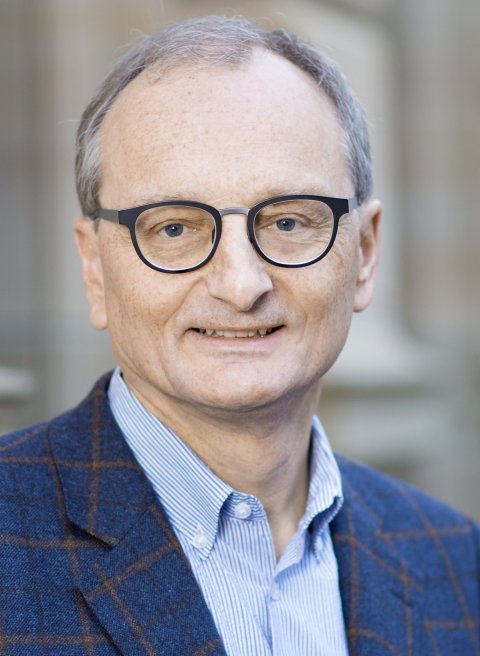
Image source: University Hospital Tübingen
Arguing in favour, Prof. Dr Falko Fend from the Institute of Pathology at Tübingen University Hospital in Germany, discussed what pathologists want from AI, such as increased diagnostic accuracy and extraction of “invisible” biologic and prognostic features, and looked at the AI tools that are needed in pathology. But he warned: ‘To use it in a technical way, we need an integrated digital pathology system; we need expertly curated cohorts, clinically and diagnostically valid questions, intensive collaboration with computer scientists, stringent evaluations in practice settings, and data.’
Bottlenecks to AI are the availability of digital pathology, computing power and storage, and a need for regulation. While there are doubts over jobs and skills erosion, the expert said there is a need to foster a ‘pragmatic attitude’ to AI. ‘Pathologists need to be involved right from the beginning, testing algorithms rigorously in clinical diagnostic setting,’ he continued. ‘In the end, AI should not replace expertise in pathology, but pathologists should use AI tools to make a better diagnosis and not see AI as a replacement for expertise. Perhaps AI will make us better pathologists, but different ones to before.’
Exploratory phase

Providing the con counterpart to Prof Fend’s pro-arguments, Dr Catherine Guettier from the Department of Pathology, Hôpital Bicêtre, Paris, suggested pathologists are not ready for AI in practice. She declared that AI in pathology is still in the exploratory phase, with only very few early adopters. To back up this claim, the expert pointed out that, as of April 2023, there were fewer than ten AI-enabled medical devices in pathology approved by the FDA – compared to nearly 400 in radiology.
‘The integration of AI in pathology has been limited by a range of obstacles: the slow diffusion of digital pathology, which is the basis of AI, uncertainties about the quality of AI algorithms and the regulatory constraints,’ she said. Elements missing for large-scale adoption of AI in real life settings include seamless integration of algorithms in the pathologist workflow, a sustainable economical model and lack of an in-depth reflection on the strategy for using AI within the discipline.
However, in a survey during the session, more than half of delegates found themselves supporting the “pro” side, agreeing, or even strongly agreeing, that pathologists are ready for using AI in practice.
How much do we need to understand?
A second debate focused on interpretability and explainability in AI and whether it is necessary. Vincenzo L'Imperio, Assistant Professor of Pathology at the University of Milano-Bicocca, Monza, Italy, argued that it is. ‘Interpretability and explainability in AI can be of help when applying these algorithms for diagnostic purposes,’ he said. However, Diana Montezuma Felizardo from the clinical laboratory group IMP Diagnostics in Portugal, argued against the question. She said: ‘AI has made significant advances in various fields, including pathology. As AI models become more complex, the topics of interpretability and explainability have risen as key concerns. The real issue often lies in the delicate balance between making AI understandable while maintaining its sophisticated capabilities.’
Profiles:
Dr Ricardo Baptista Leite is a Portuguese-Canadian medical doctor trained in infectious diseases with extensive experience in global health. Prior to his current role as CEO of HealthAI, he served four terms as a Member of Parliament in Portugal.
Professor Dr Falko Fend is Medical Director at the Institute of Pathology and Neuropathology and Head of the Department of General and Molecular Pathology and Pathological Anatomy at Tübingen University Hospital in Germany.
Catherine Guettier is Professor of Pathology at Paris-Saclay University and Head of the Department of Pathology Hôpitaux Universitaires Paris-Saclay – Assistance publique – Hôpitaux de Paris (AP-HP). A pioneer of digital pathology in France, her expertise is in liver pathology and development of AI-based algorithms in pathology.
Vincenzo L'Imperio is Assistant Professor of Pathology at the University of Milano-Bicocca, Monza, Italy. His professional interests focus on renal pathology, hematopathology and proteomics.
Dr Diana Montezuma Felizardo is Head of R&D at IMP Diagnostics, a group of clinical diagnostic laboratories specializing in anatomic pathology and headquartered in Porto, Portugal.
05.11.2024



